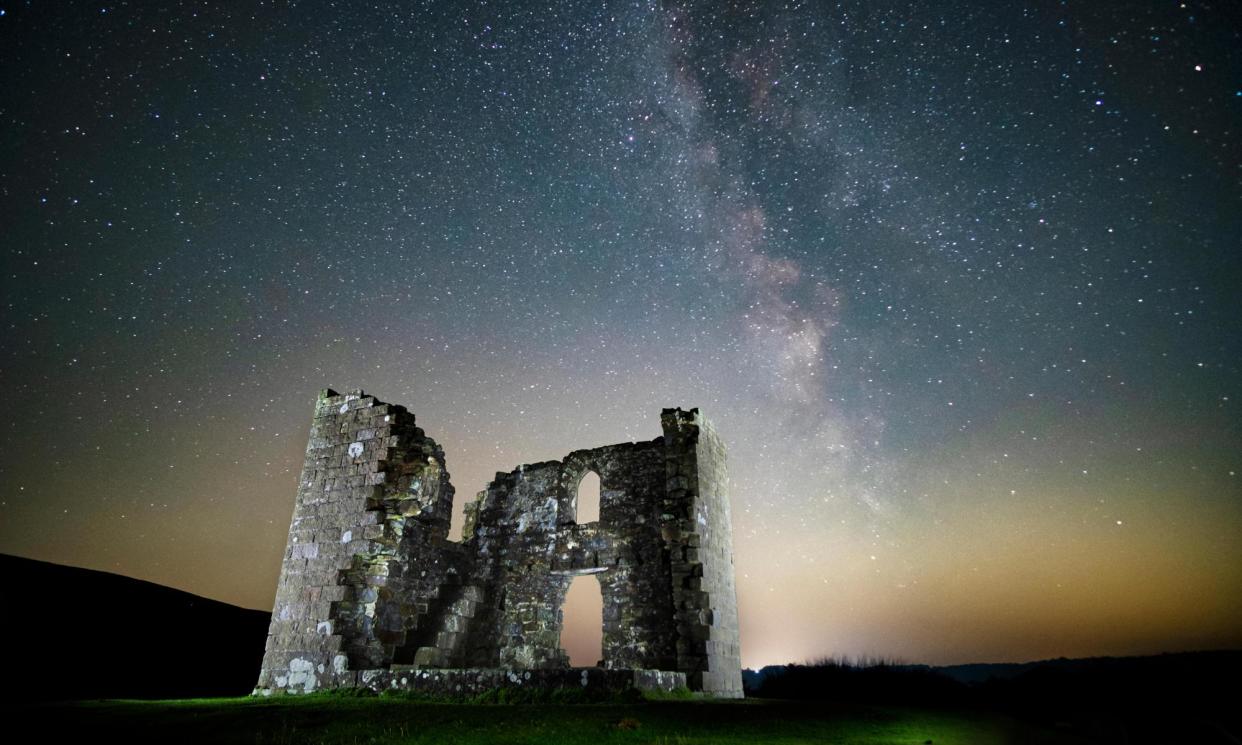Out with beach days, in with star-gazing: how holidays turned nocturnal

For the campers at the Dark Skies site near the Cambrian mountains in Wales, the blackness of the pitches is an important draw.
“When people come, they are blown away by the night sky,” said Tanya Jordan, who owns the site and holiday cottages nearby. “We get people who know about it and come for that reason.”
Last week, guests were treated to views of the northern lights and a Perseid meteor shower. “We had two lads in their teens who were doing photography – they were out until 3am,” she said. “When you’re in a city, you can see about 100 stars with the naked eye. You can see 2,500 here.”
While many holidaymakers still seek bright sunshine, complete darkness is a big attraction for a growing number of tourists. Travel companies are reporting a surge in interest in cottages, campsites and hotels that offer the opportunities for stargazing, or a good night’s sleep, afforded by an escape from light pollution.
Jordan said previous visitors have included a man “who wanted to propose to his girlfriend under a starry sky”. In autumn, the whole arc of the Milky Way is visible in the skies above the site. One of the cottages features a “stargazing balcony” to enjoy the view, and visitors can book walks with local astrophotography expert Dafydd Wyn Morgan.
Earlier this year, the holiday rentals website Unique Homestays predicted that “dark sky sleepovers” would be a trend this year after its booking team noticed people were specifically looking for places to enjoy the stars. Jess Clark, the comany’s creative director , said: “People are specifically asking for places with dark skies. When there’s been something like the Perseid meteor shower coming up, people have been asking: ‘Where can we go to see it, and what can we book?’”
Clark said that clients were keen to visit remote spots, where they could be “properly immersed in nature” and maybe “fall asleep under the stars”, but that many still wanted good internet connections while they were there.
Several properties listed on the site are in designated dark sky areas: the status is given by DarkSky International, a US-based group lobbying against light pollution. One holiday let, called Celestia, is near Bannau Brycheiniog (or the Brecon Beacons) and boasts a “stargazing bowl” – a landscaped dip in the garden where guests can lie and look up at the sky.
Related: Beyond the Lake District: five of the UK’s less-visited national parks
Elsewhere in the UK, the Grand hotel in York started offering a dark skies break in 2021 and will run another later this year. For £415 and upwards, guests get a night in the hotel, dinner and breakfast, and a trip with an astronomer to the North York Moors – an area given International Dark Sky Reserve status in 2020.
The Grand’s hotel manager, Chris Cooper, said that, since the pandemic, guests have been seeking “extraordinary experiences in the great outdoors”. The dark skies event has proved popular. “We’ve welcomed locals who are eager for a new experience close to home, as well as those who are travelling from farther afield to enjoy the beauty of Yorkshire,” he said. “We find that most of our guests share a common thread – a sense of adventure and curiosity about the magic of the skies above us.”
Beyond the UK, cruises to see the northern lights have long been popular, but travel agents said they had seen an increased appetite for other night-time adventures.
Alonso Marly, travel agent at Skylux Travel, which specialises in high-end trips, said: “While some holidaymakers prefer travelling to the hottest beach destinations to make the most of those long and hot days in the sun, this year I have noticed an increased interest in destinations that also offer night-time activities and entertainment options, such as going scuba diving, chasing northern lights, taking nocturnal museum tours, going on starlit safari adventures, trying out after-dark golf, enjoying night spas and practising guided full-moon meditations, just to name a few.”


